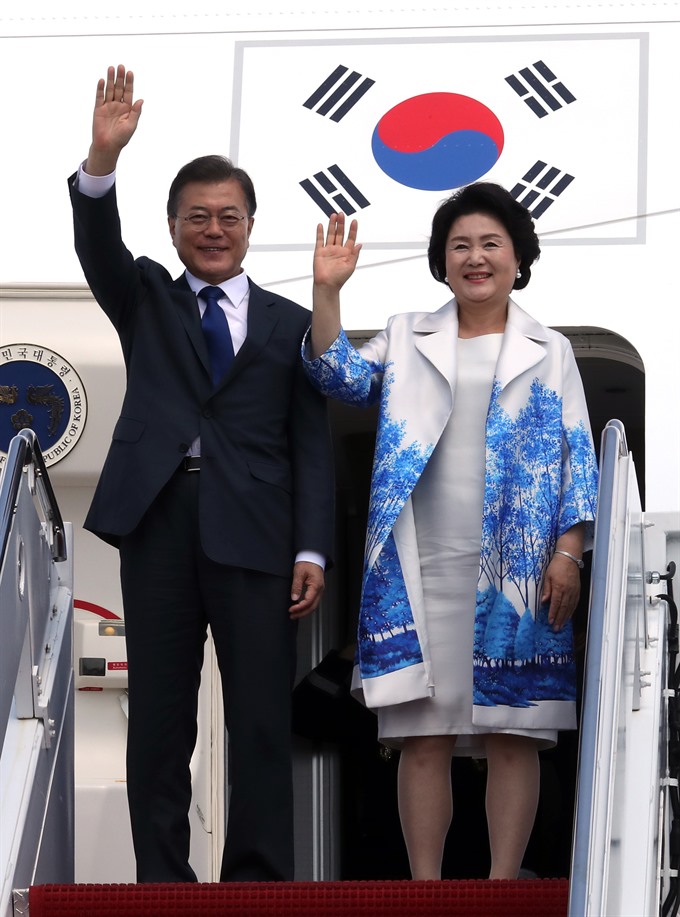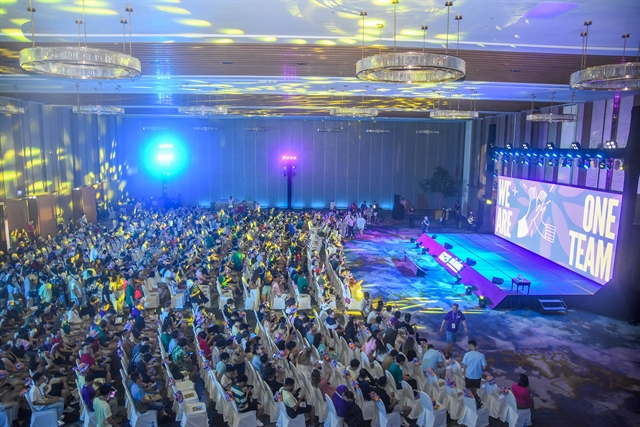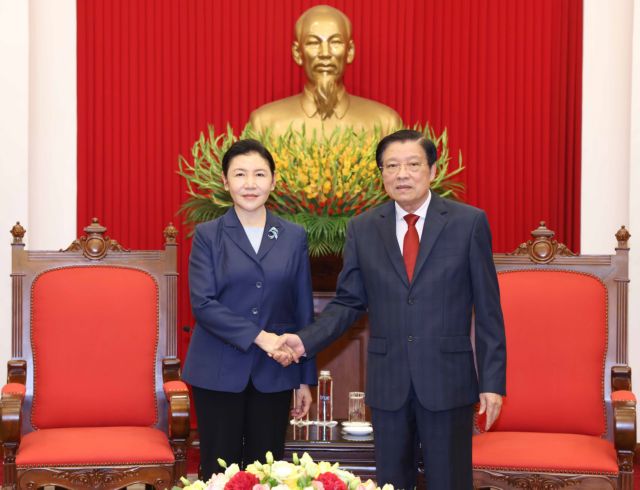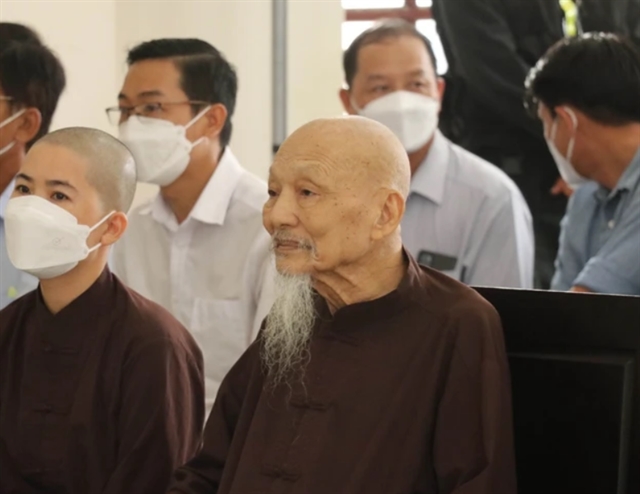

South Korea's President Moon Jae-In arrived in Washington on Wednesday on his first overseas trip since taking office, for planned talks with his US counterpart Donald Trump.
 |
| South Korean President Moon Jae-in and his wife, Kim Jung-sook, wave after arriving at Joint Base Andrews in Washington for a four-day visit to the United States on Wednesday. - YONHAP/VNA Photo |
WASHINGTON — South Korea’s President Moon Jae-In arrived in Washington on Wednesday on his first overseas trip since taking office, for planned talks with his US counterpart Donald Trump.
Moon, who backs engagement with nuclear-armed North Korea, was to meet on Thursday with Trump during his first foreign outing since being sworn in last month after a landslide election win.
Late on Wednesday, he was scheduled to take part in a wreath-laying ceremony at a war memorial in Quantico, Virginia, and later was to attend summit of Korean and American business leaders.
His agenda on Thursday includes meetings with lawmakers on Capitol Hill and an evening visit with the US president and First Lady Melania Trump, including a reception and dinner.
Washington, South Korea’s security guarantor, has more than 28,000 troops in the country to defend it from its neighbour, which has been intensifying missile tests - including five since Moon’s inauguration.
Pyongyang is seeking to develop nuclear-capable ballistic missiles that could reach the continental United States.
Trump has been pushing for tougher sanctions against Pyongyang to curb its nuclear ambitions and whose administration has said military action was a possibility.
Also expected to be high on the agenda is likely to be a controversial US missile defence system that has been installed in South Korea to guard against missile threats from the North.
Though parts of the Terminal High-Altitude Area Defense (THAAD) system are already in place, Moon suspended further deployment following a furious campaign of economic sanctions and diplomatic protests by Beijing against the US missile shield, dealing a blow to Washington’s regional security policy.
Officially, the delay is to allow for a new, comprehensive environmental impact assessment, but analysts say the move is a strategic one by Moon to delay the tricky diplomatic situation he inherited. — AFP









